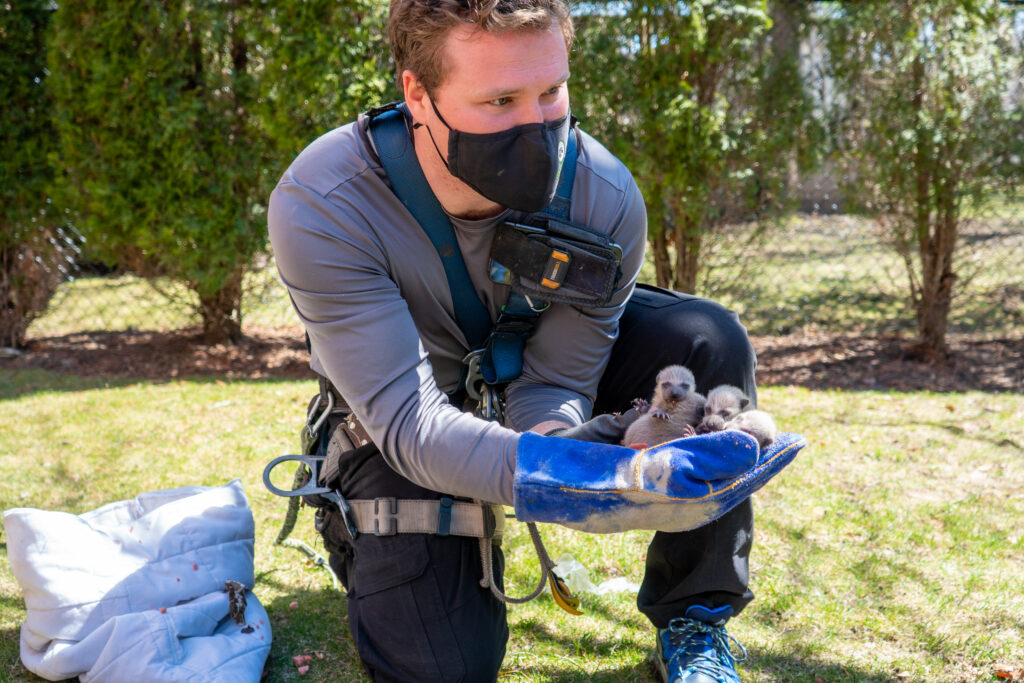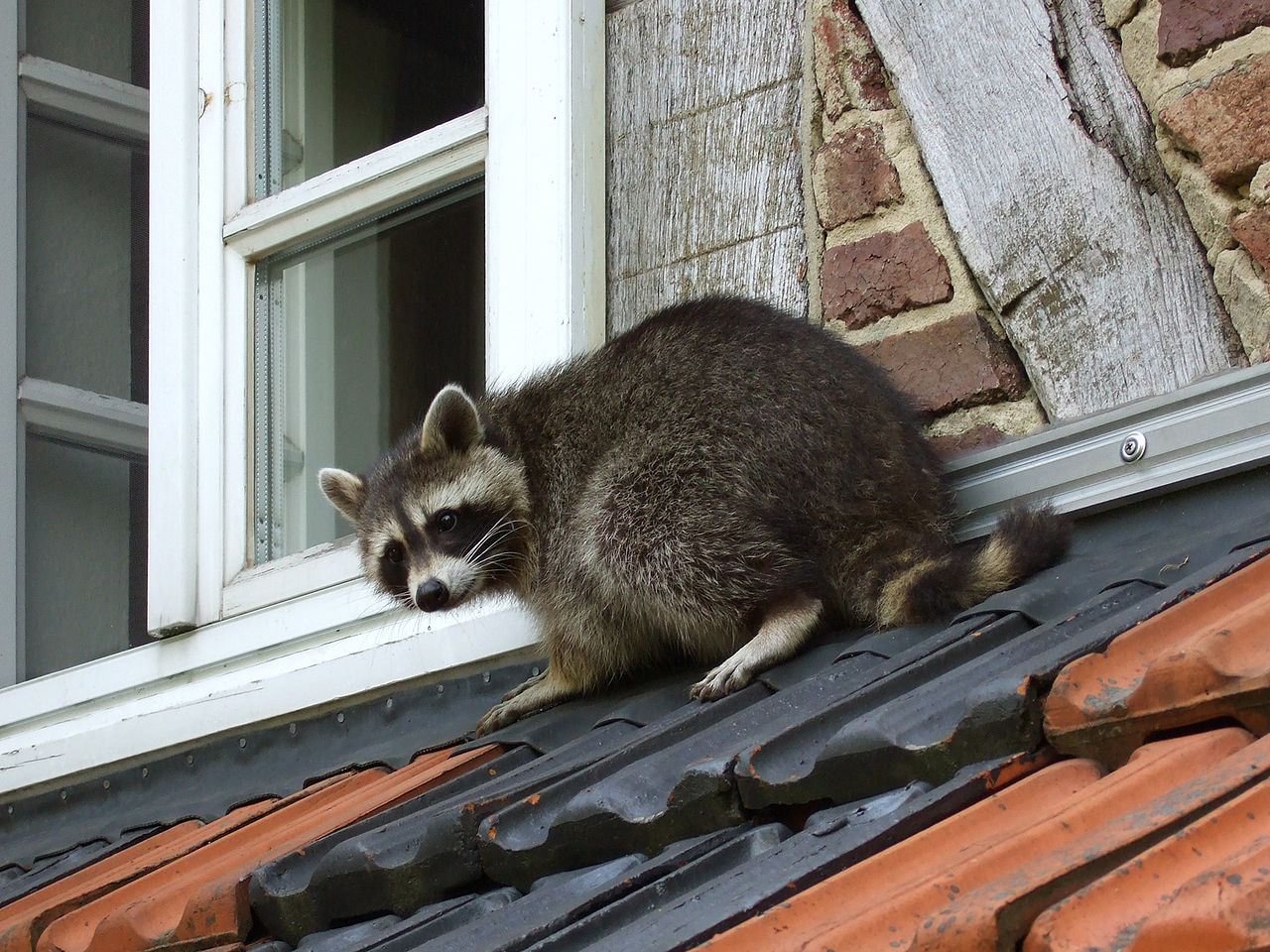Families of Raccoons
Pregnant females tend to isolate themselves when they start searching for a den site to raise their babies. They give birth nine weeks after mating to litters of up to eight kits at a time, but most litters range between three and five babies each. Baby raccoons vocalize immediately and often sound like chirping birds. The sound gets louder as the babies grow, and once they are around 12 weeks of age, they start to leave the den to forage for food with their mothers. Raccoon babies live with their mothers for a year or more. Males usually leave the group a few months before they reach a year old, but females may stay with their mother for many years until they become pregnant and want to isolate. Because raccoon babies stay with their mothers for so long, having a single pregnant raccoon in your home can quickly turn into a full-blown infestation if she has a lot of kits in her litter. The more babies a raccoon has, the more damage there is to your home and the harder the removal process becomes. Is best to trust raccoon removal to an expert, especially if there are babies involved.Living Habits of Raccoons
Male raccoons are almost always solitary creatures. The exception is young males who still live with their mothers, but they usually leave the group within a year of their birth. When mature, males are usually only around other raccoons during mating season. Female raccoons, on the other hand, prefer to live in small social groups. They don't typically hunt together, but they share feeding grounds and den sites. Young females often live with their mothers for a few years after birth and sometimes don't leave the group until they become pregnant. The sole exception for females is those that are pregnant. When a raccoon becomes pregnant, she becomes isolated and starts to search for a separate den site for her babies. Therefore, if you see a solitary raccoon, it is either a male or a pregnant female.Hunting Habits of Raccoons
Because raccoons are omnivores, they eat a wide variety of foods. Along with nuts, birds eggs and berries, they also eat insects, mice and fish, so they do engage in hunting behaviours occasionally. However, raccoons do not hunt in packs. They may share feeding grounds with other raccoons but prefer to hunt alone.Prevent a Raccoon Infestation
 Making your home a less hospitable environment for raccoons is the best way to deter the creatures from your house. Board up any cracks or holes in your home's exterior, and make sure you secure your garbage so raccoons do not have an easy source of food. You should also avoid leaving pet food unattended outside. If you still have raccoons in your home despite your best efforts to prevent them, it's time to call in wildlife control in Okanagan.
Skedaddle Humane Wildlife Control specializes in raccoon removal, so our technicians can make sure the animals are removed without harming them. If you need raccoon removal, contact us today to schedule an appointment. Wildlife professionals will not only leave your home free from any trace of raccoons, they will also secure all the entry points with secure steel screening. Having the people with the trained eye means that every small place raccoons could get inside is identified and sealed.
Making your home a less hospitable environment for raccoons is the best way to deter the creatures from your house. Board up any cracks or holes in your home's exterior, and make sure you secure your garbage so raccoons do not have an easy source of food. You should also avoid leaving pet food unattended outside. If you still have raccoons in your home despite your best efforts to prevent them, it's time to call in wildlife control in Okanagan.
Skedaddle Humane Wildlife Control specializes in raccoon removal, so our technicians can make sure the animals are removed without harming them. If you need raccoon removal, contact us today to schedule an appointment. Wildlife professionals will not only leave your home free from any trace of raccoons, they will also secure all the entry points with secure steel screening. Having the people with the trained eye means that every small place raccoons could get inside is identified and sealed. 


